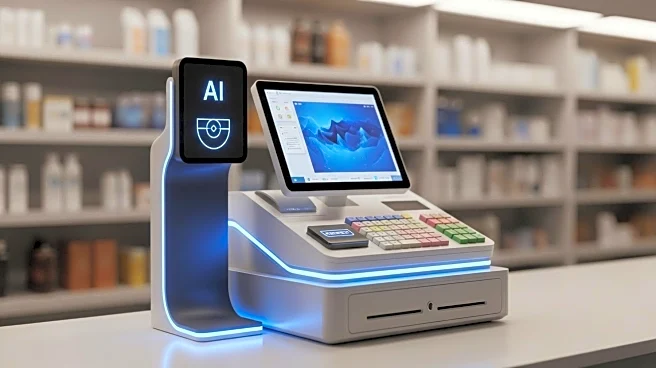What's Happening?
At the CSP Center Store Forum, Art Sebastian, founder and CEO of NexChapter, highlighted the increasing adoption of artificial intelligence (AI) by convenience-store retailers. Nearly 90% of these retailers are either using or evaluating AI projects, with 87% reporting positive impacts on revenue and 94% noting reduced operating costs. Sebastian emphasized the transformative potential of AI-enabled planograms and layout updates, which can enhance sales by up to 15%. He outlined a vision for the future of convenience stores, transitioning from static shelves to data-driven merchandising and personalized shopper promotions. Sebastian also advised retailers to evolve their loyalty programs, expand e-commerce capabilities, and enhance in-store checkout experiences. In-app gamification was suggested as a strategy to engage loyal customers, leveraging frequent phone usage to drive brand engagement and store visits.
Why It's Important?
The integration of AI in convenience stores represents a significant shift in retail strategy, with potential benefits for both retailers and consumers. By adopting AI, stores can optimize inventory management, personalize customer experiences, and streamline operations, leading to increased profitability. This technological advancement could redefine the competitive landscape, as retailers who effectively implement AI may gain a substantial edge over those who do not. Additionally, the focus on personalized promotions and loyalty programs can enhance customer satisfaction and retention, crucial factors in a highly competitive market. The broader retail industry may observe these developments closely, as successful AI integration in convenience stores could set a precedent for other sectors.
What's Next?
Convenience-store retailers are expected to continue investing in AI technologies to further enhance their operations. As AI becomes more integrated, retailers may explore additional applications, such as predictive analytics for inventory management and advanced customer segmentation. The industry could also see increased collaboration with tech firms to develop tailored AI solutions. Stakeholders, including technology providers and retail consultants, may play a pivotal role in guiding these transformations. As AI adoption grows, regulatory considerations around data privacy and security may also come to the forefront, necessitating careful navigation by retailers.









